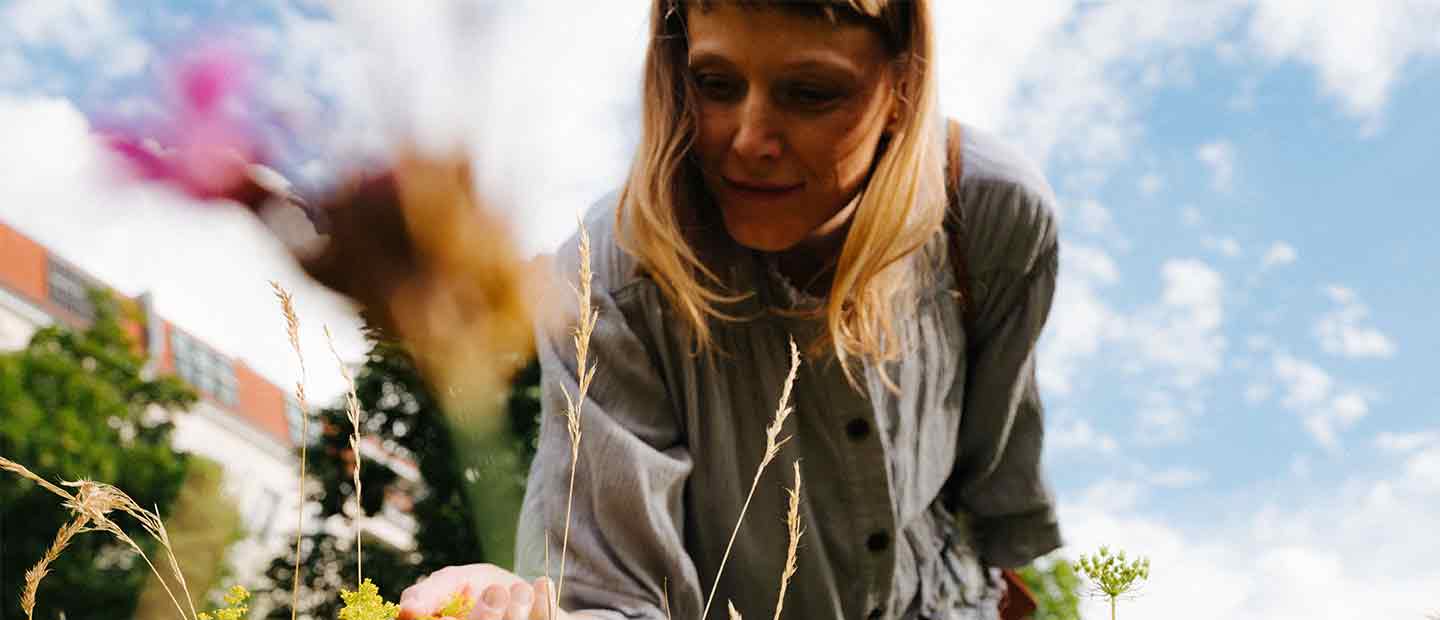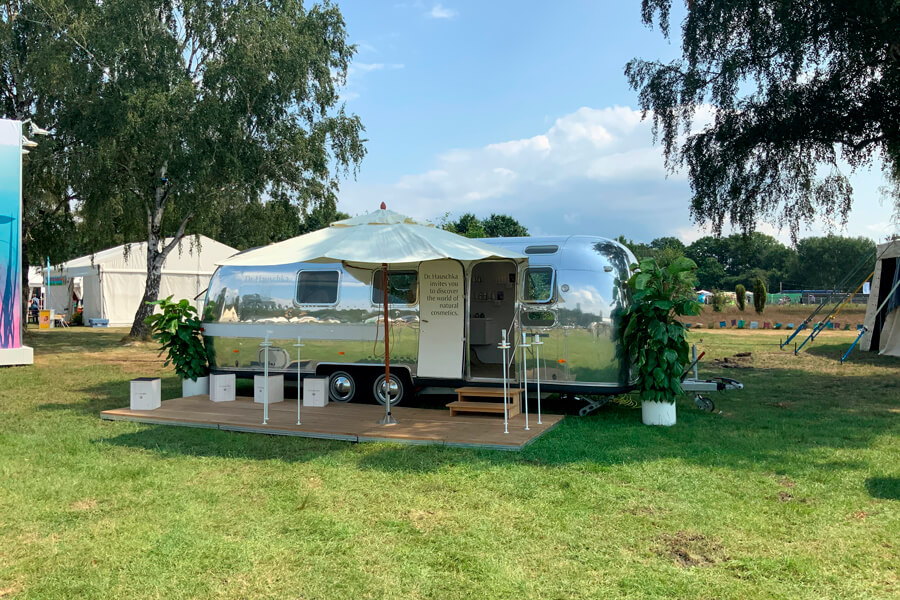Partnerschaften
The Quiet Activism of The Lissome Founder Dörte de Jesus.
In our Faces series we introduce a number of inspirational women who live out their own vision of our world, of beauty, impact and curiosity, in both their private and professional lives. Amongst others we hear from Dörte de Jesus, Creative Director and founder of Lissome, who shares with us her enduring attitude towards sustainability and mindfulness.
During her early childhood in the north of Germany, Dörte de Jesus enjoyed exploring and adventuring in the fields and by the sea, ultimately giving her a strong Foundation rooted in independence and respect for the natural world. After years in the fashion world including time at Elle Magazine, she became interested in sustainable fashion, and studied the economic, environmental, and systemic impacts of the industry. She has since expanded her focus to include holistic and alternative ways of linking fashion, beauty, and sustainability. Now working as a creative director, designer, and editorial director of The Lissome Magazine, a regenerative fashion magazine that she curates with photo director Anna Rosa Krau, fashion director Sophia Schwan and an international collective of creatives, she believes that in order to best care for others and the planet, we must simultaneously slow down and care for ourselves.
In every project she takes on, Dörte prioritizes joy and space for rest and contemplation as she seeks ways to nourish her authentic sense of wonder and intellectual curiosity. From her home in Berlin, she speaks openly about practices that promote balance, her sources for inspiration, and the pact she made with herself to never become jaded.
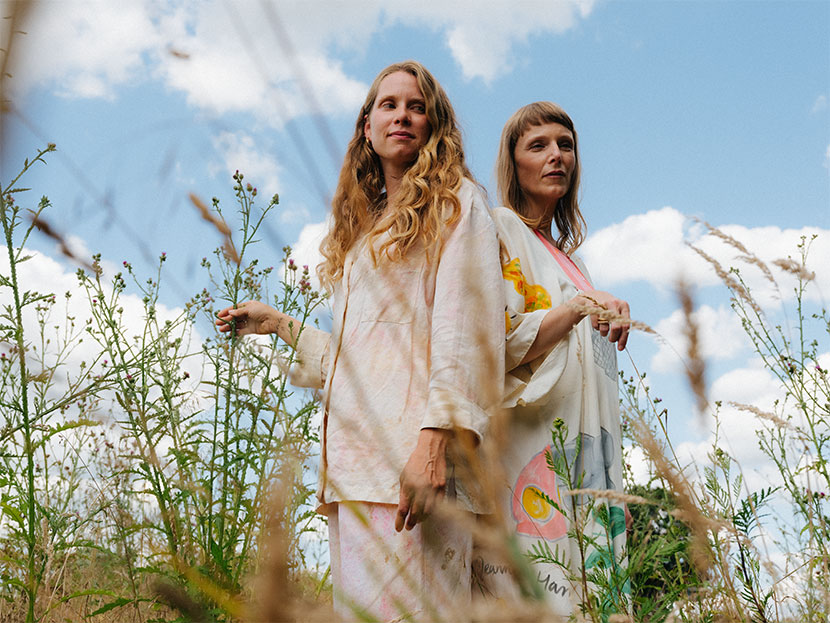
What is your relationship to fashion?
I have always loved the theatrical aspect of fashion and how much self-expression it allows. It's very playful. It can also be the opposite, of course. If you feel pressure to follow fashion like a regiment or feel pressure to keep up with the latest trend, there is not a lot of pleasure in that. I am not interested in fashion as another set of rules to know about and obey. My interest or perspective has always originated from a place of experimentation and playfulness.
After some years working in magazines and in the more traditional fashion world, I became interested in sustainable fashion. I did a lot of research, and I found the dialogue and communication surrounding sustainable fashion was very fact-driven. I started to miss the beauty, joy, and wonder—aspects that are so alluring and why people are drawn to the fashion world in the first place. Something very essential - something very important - was missing in the communication relating to sustainable fashion. And that was beauty.Telling thought-provoking stories in a beautiful, gentle and inclusive way is the essence of our work at The Lissome.
What does beauty mean to you?
I once listened to an episode of On Being, a podcast with Krista Tippett, and she was interviewing John O’Donohue. The episode is called ‘The Inner Landscape of Beauty’, and when I first heard it, his perspective made so much sense to me. It was a memorable ah-ha moment. He spoke about how, as a culture, we have mistaken beauty for glamour and a standardized and superficial glitz. But beauty is something entirely different.
For me, beauty is something that nourishes the soul by connecting us to the awe of being alive. There's so much beauty in the natural world. It’s such a miracle. Moments of beauty are when I feel touched by a very genuine sense of awe.
The world seems filled with so much cynicism, especially in relation to the future, or hope in general. You come across as refreshingly sincere and authentic. Where does that come from?
When I was around twenty years old, I had a very close friend from the U.S. He had studied at my high school and one summer he wrote to me and said, “I am going to be on tour in Europe with this hard-core Punk band. If you’d like to join us, you’re more than welcome to come along.” I joined them on tour for two or three weeks. They played this very loud, aggressive music but they were sweethearts, and they were full of love for life. I remember at one point, one of them said, “I swear to myself, I will never, ever become jaded.” In that moment, I heard that message so clearly and it moved me. I made a pact with myself that I too will never, ever become jaded. I still sometimes think back on that time. I haven't seen them for so many years, those Punk Rock boys, but it left a lasting impression on me.
I think we also need an anchor to remain sincere and optimistic. I noticed during the pandemic that it is critical to rest and take breaks and to create some space. I don’t want to rush through life, and more and more I need time to slow down, just be, breathe, and be in the moment. Slowing down is a function of deepening our awareness, tuning into our senses, and becoming intimate with a world that is alive. That’s how to stay connected to sincerity or authenticity, too.
How do think we can stay slow, or slow down if we haven’t yet?
I'm only just starting to manage this since I’ve started working for myself. When I worked for design agencies and at women’s magazines, it could be difficult. I feel that work environments can be very unhealthy. Also, it has taken me a while to stop feeling guilty for taking my time. That pressure is culturally or socially ingrained in us. There is an inspiring Instagram account called the The Nap Ministry where they talk about how we live in a grind culture and how it’s fueling a system of profit for profit’s sake. By stepping away, taking breaks, we are making a new system or a new way of life possible. Ever since I read that line of thinking, I reframed my own judgment and began to think, “ok, revolution! I am resting.”
I’ll also add that in our last issue of The Lissome, one of our contributors, Ania Zoltkowski wrote a piece called A Sensual Awakening which is about pleasure activism and rest. It was such an important article for me. I believe that life is about experiencing and sharing joy. There is a high frequency in happiness. How can we create something that is uplifting and meaningful for ourselves and others if we feel in the grip of stress and fear?
What was the catalyst for you to begin to care for yourself and protect your time differently?
Initially it was a theoretical understanding that led me to shift my habits. I read Robin Wall Kimmerer’s Braiding Sweetgrass, which was such an important book for me as it left me with an understanding that we aren’t separate from one another, and our actions are so deeply interconnected.I began to look at the (natural) world in a different way when I read about this interconnected perspective. It has become more important for me to be in nature, and attempt to walk through the world with more awareness. I practice meditation, I also do tapping. I had my first Reiki session and I loved that, too. And flower essences! I think there are a lot of tools out there that can help us to grow more aware of ourselves.
I believe that we need to do inner work in order to navigate the world from a more balanced position. The act of creating awareness by looking at our shadows, looking at our conditioning, learning about non-violent communication, being interested in that kind of reflection is really important. This perspective impacts the outside world, too. Through showing ourselves love, acceptance, and care there’s an opportunity to come into a new relationship with ourselves, and then into deeper connection with the natural world, and others around us.
You seem interested in research and life-long learning. Where does your intellectual curiosity stem from?
There is so much incredible wisdom around us. It is exciting, empowering, and quite addictive once you’ve tasted the delightfulness of learning new information. When I was growing up, my parents would read to me every night. That was probably one of the biggest gifts they've given me. It instilled a comfort in learning and an innate attraction to new information. What I love about working on a magazine is that we organize each issue around a central topic and that inspires me to do highly focused and thorough research on a theme. Through this kind of organization of information, I have learned a lot—about diverse topics like localization, the commons, craftsmanship, or regenerative practices.
I recently read Caliban and the Witch: Women, the Body and Primitive Accumulation by Sylvia Federici. My main reason for reading it was because I wanted to understand the roots of capitalism and the scenarios around its early manifestations. I think we are at a stage when something fundamental needs to change, and we need new systems. I wanted to understand the system that isn’t working, too. I am interested in what Federici brings to light about The Commons, the role of women in society, early land grabs, private property. I always feel that I need to dig deeper, find out more, but also be rigorous about making sure the information is well-researched and sound.
There’s a current trend towards sustainability in beauty and fashion. What are the positive sides to this, and what are the negative aspects?
There is a risk at the moment in regard to words being thrown around a lot that mean very little in terms of transparent practices. Brands might claim something, but there’s not a lot of depth or back-up as to whether the claim is real. It’s important to ask, what do I specifically mean by that word? I don't really like using the word sustainability, for example, because it is not ambitious enough. I think we're past sustainable. I like regenerative. I think it is time to not just maintain where we are, but to repair the damage we have done. And create new ways that are nourishing rather than depleting.
Sophia Schwan, our fashion director, is fascinated by permaculture practices. She lives in a small village outside of Berlin and has begun experimenting with all sorts of methods for gardening and design that repair the landscape and create systems that work intelligently and holistically. It’s exciting because it is not short-term thinking, but long- term thinking and planning.
How do we, as a culture, break this habit of short-term thinking?
I find it helpful to research Indigenous traditions that are deeply rooted in a much longer, multi-generational perspective. Thinking of the next seven generations, for example, results in very different decisions.Getting outside of our own lifetimes and thinking long-term could dramatically shift our priorities, expand our minds, and change our behavior. In this mindset, we are then more like guardians or stewards during our lifetimes and it's our task to protect and preserve the earth for the future.
I think that, going back to beauty, it can inspire us to act. We're tiny little speckles in a vast universe, and it has been here for such a long time. It's such a miracle. Moments of beauty are when I feel touched by that, when I feel connected to our home planet and this ultimate mystery. And hopefully then, through connection, we are moved to protect our earth.
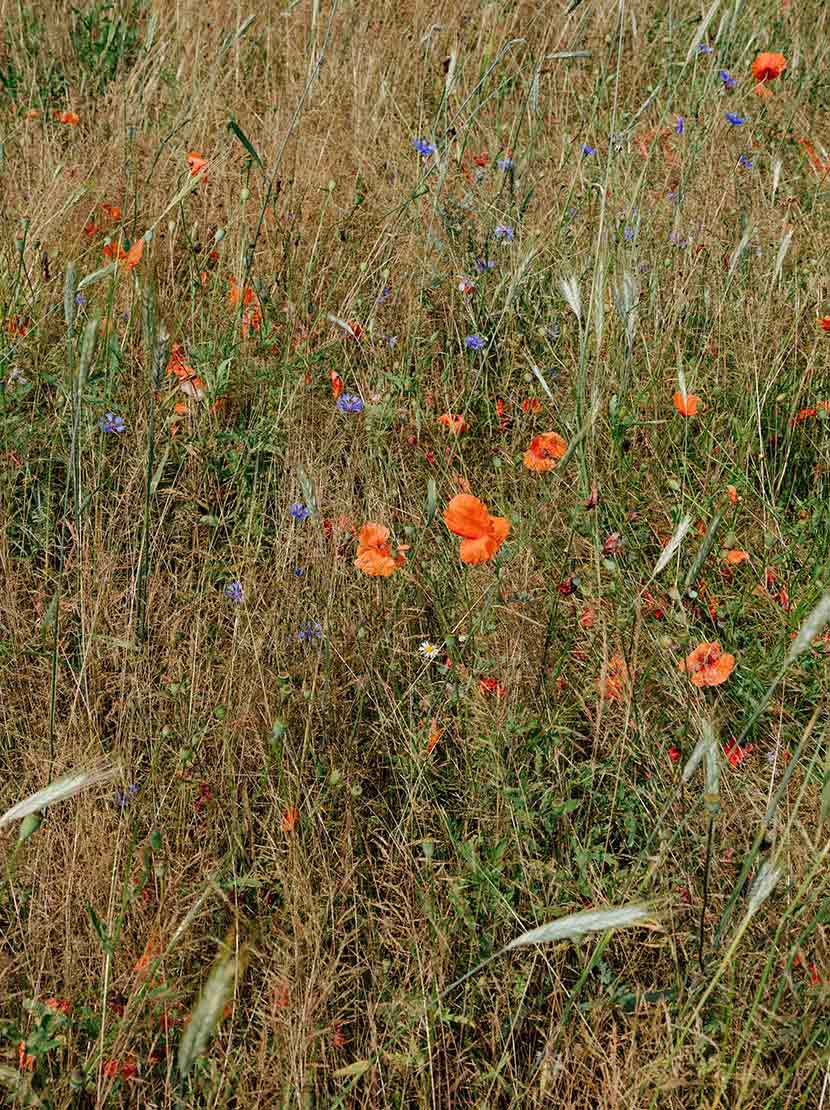
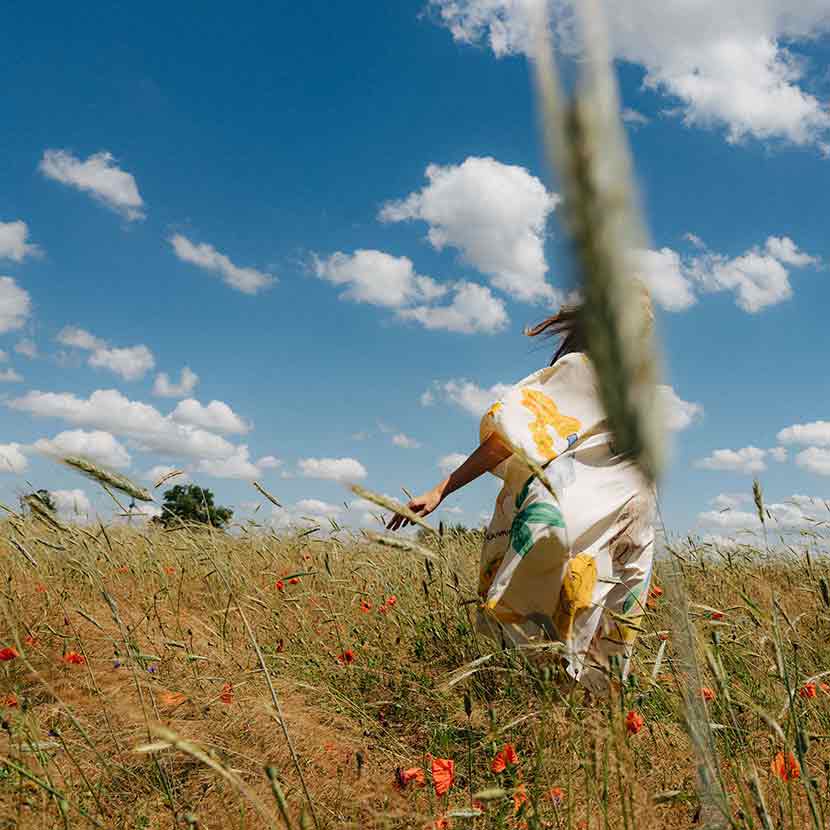
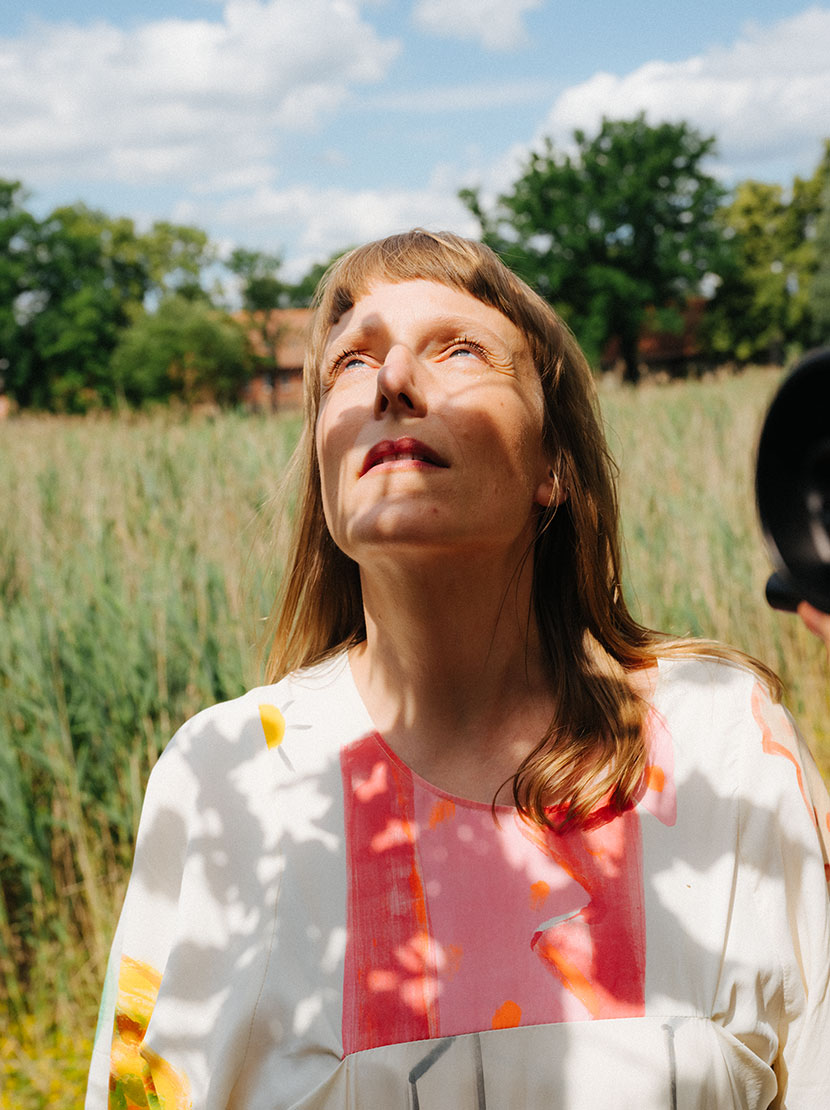
This interview is part of “A Different View On Cosmetics,” a content series produced in collaboration with Friends of Friends. Showcasing female creatives who challenge conventional ways of thinking within their field, each profile highlights women who share a sense of responsibility to create ecological, social, and economic change. With passion and conviction, these inspirational figures demonstrate integrity, innovation, and curiosity. Along with Dörte de Jesus, this series includes features on journalist, photographer, and VR filmmaker, Julia Leeb, and digital fashion designer and innovator Amber Jae Slooten.

